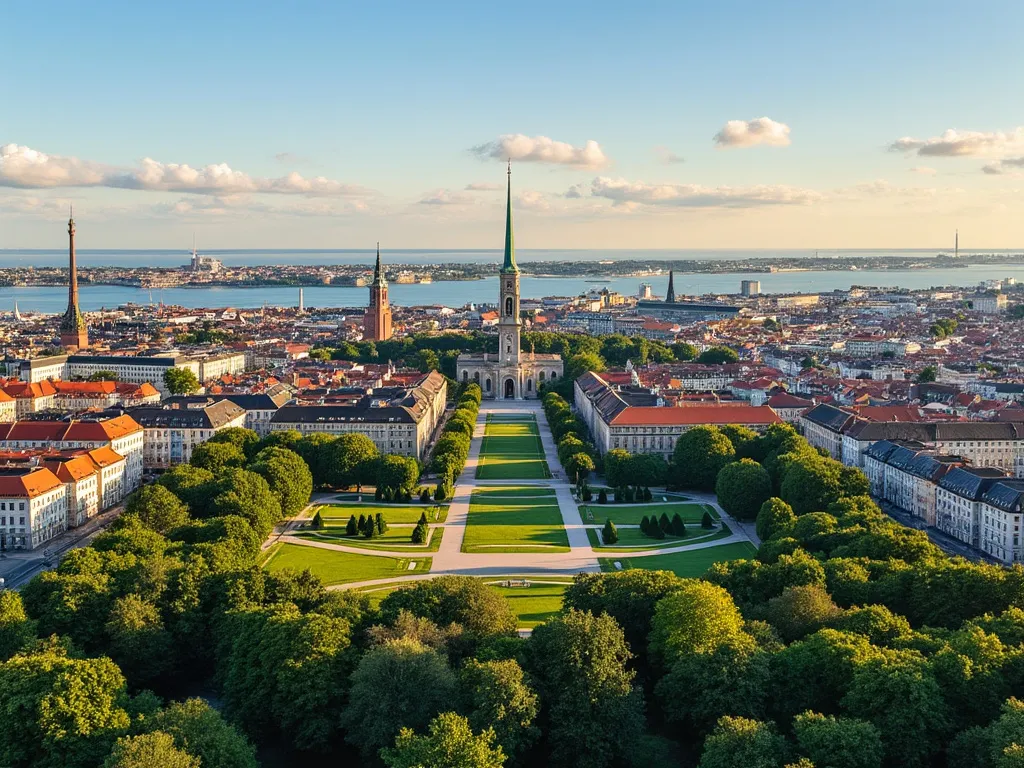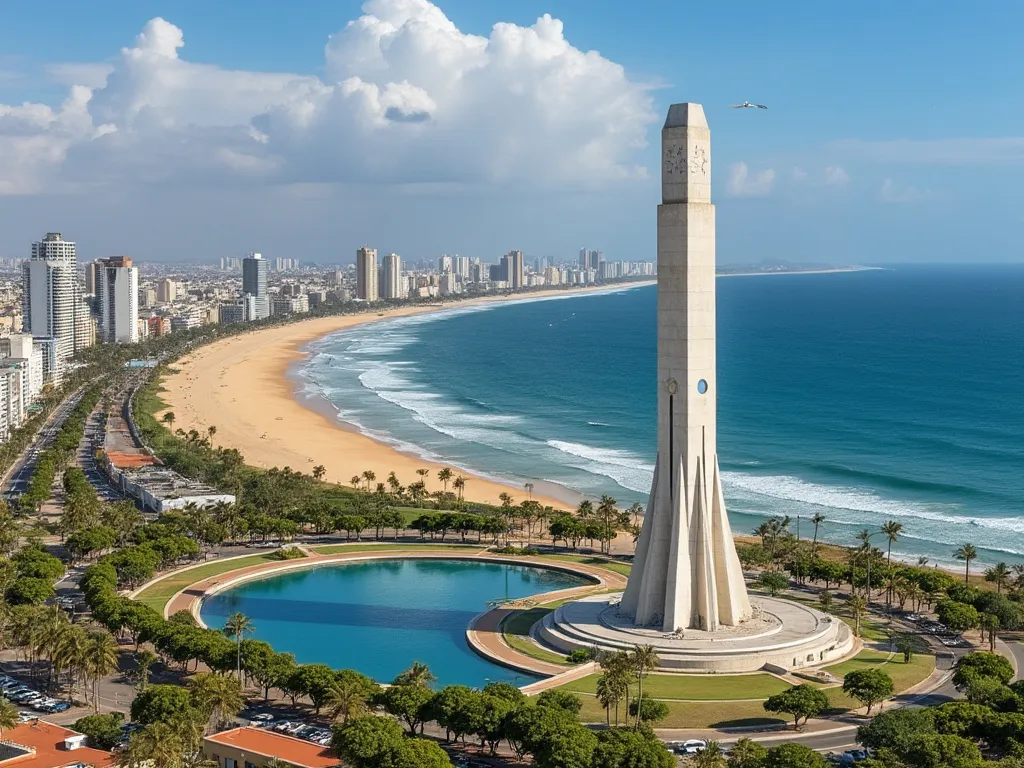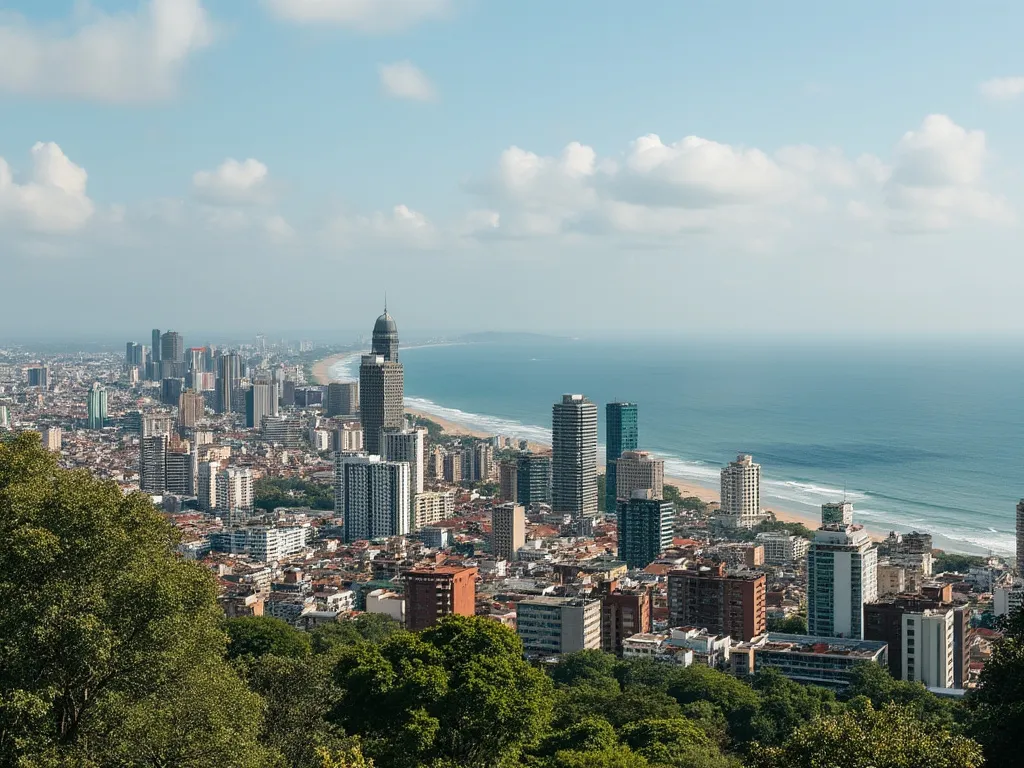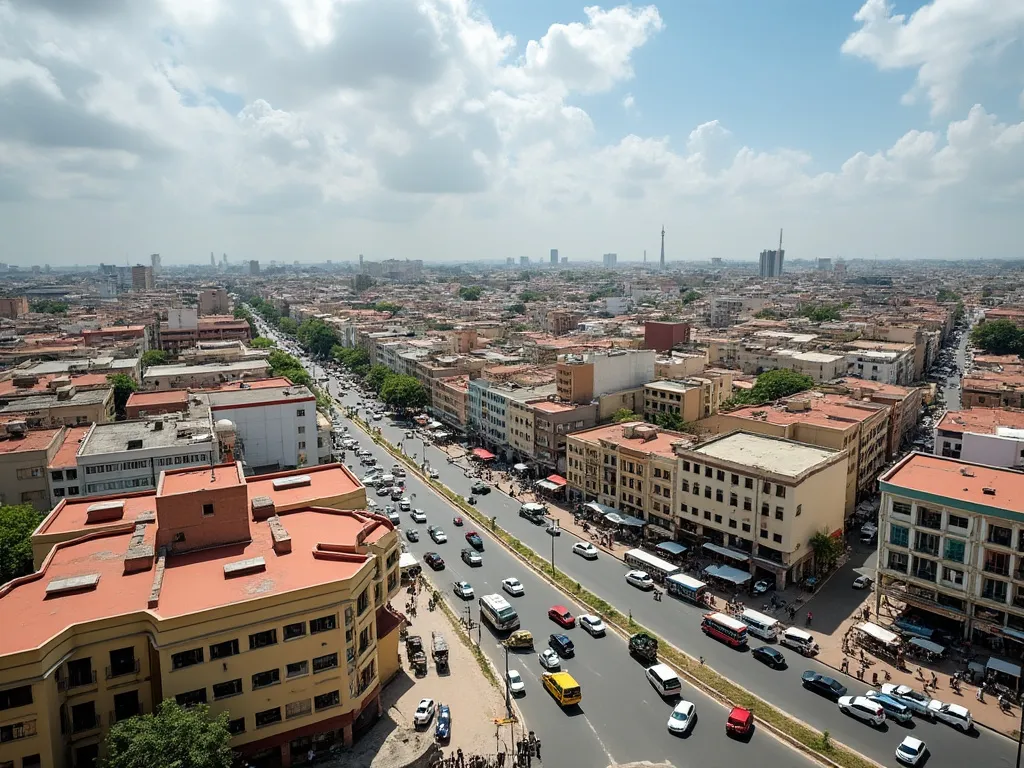
Copenhagen, the capital and largest city of Denmark, is a vibrant and cosmopolitan metropolis that seamlessly blends history, culture, and modernity. Located on the eastern coast of Zealand, the city is situated on the Øresund Strait, which separates Denmark from Sweden.
Copenhagen Information
| Country | 🇩🇰 Denmark |
| Population | 623,851 (urban area: 1,357,876) |
| Coordinates | 55.6761° N, 12.5683° E |
| Area | 86.4 km² (33.4 sq mi) |
| Climate | Temperate oceanic climate (Köppen: Cfb) |
| Language | Danish |
| Currency | Danish krone (DKK) |
| Time zone | CET (UTC+1) |
| Proximity to other major cities | Malmö, Sweden (35 km / 22 mi), Hamburg, Germany (292 km / 181 mi) |
Historical Background of Copenhagen
Copenhagen was founded in the 12th century as a small fishing village, and over the centuries, it grew into a significant trading center. In the 15th century, the city became the capital of Denmark and Norway, and in the 17th century, it was fortified with walls and bastions. The city's strategic location made it an important hub for trade and commerce, and it played a significant role in the Hanseatic League.
Geographical Location of Copenhagen
Copenhagen is situated on the eastern coast of Zealand, the largest island in Denmark. The city is built on a series of islands, including Amager, Slotsholmen, and Christianshavn, which are connected by bridges and canals. The city's harbor, which is one of the busiest in the Baltic Sea, is a significant economic driver and a popular tourist destination.
Cultural Significance of Copenhagen
Copenhagen is a city with a rich cultural heritage, and it is home to many world-class museums, galleries, and performance venues. The city is famous for its vibrant music scene, and it hosts many festivals throughout the year, including the Copenhagen Jazz Festival and the Roskilde Festival. The city is also known for its stunning architecture, including the iconic Tivoli Gardens amusement park and the Amalienborg Palace.
Economic Importance of Copenhagen
Copenhagen is a significant economic hub, and it is home to many major companies, including Maersk, Carlsberg, and Novo Nordisk. The city is also a major center for finance, trade, and commerce, and it is home to the Copenhagen Stock Exchange. The city's harbor is a significant driver of economic growth, and it is one of the busiest in the Baltic Sea.
Interesting Facts About Copenhagen
- Copenhagen is home to the world's oldest amusement park, Bakken, which was founded in 1583.
- The city is home to the famous Little Mermaid statue, which was inspired by Hans Christian Andersen's fairy tale.
- Copenhagen is one of the most bike-friendly cities in the world, with over 62% of residents commuting to work by bike.
- The city is home to the world's first offshore wind farm, which was established in 1991.
Tourist Attractions in Copenhagen
- Tivoli Gardens amusement park
- Amalienborg Palace
- The Little Mermaid statue
- Nyhavn harbor
- The National Museum of Denmark
- The Louisiana Museum of Modern Art
Conclusion on Copenhagen
In conclusion, Copenhagen is a vibrant and cosmopolitan city that offers something for everyone. From its rich history and culture to its stunning architecture and world-class attractions, Copenhagen is a must-visit destination for anyone interested in exploring the best of Europe.
 Dakar
Dakar
 Damascus
Damascus
 Sri Jayawardenepura Kotte
Sri Jayawardenepura Kotte
 Conakry
Conakry